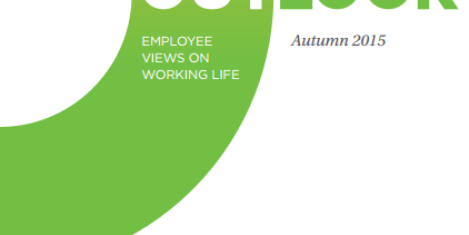November 30, 2015
Six hour working day + WeWork London plans + Megacities & COP21 0
 In this week’s newsletter; Mark Eltringham argues the six hour working day is a deeply conservative idea, dressed up in radical clothing; Matias Rodsevic says it’s important to understand what employee engagement actually means and Darren Bilsborough identifies seven separate layers or “skins” of workplace productivity. As COP21 gets underway, there’s evidence that Megacities are taking the lead in climate action, WeWork unveils its latest plans to dominate London; three new reports reveal technological confusion in the workplace; and a study says the Government’s challenge is how best to match its commitments with its resources. You can also download the new issue of Work&Place and access our first Insight Briefing, produced in partnership with Connection, which looks at agile working in the public sector. Visit our new events page, follow us on Twitter and join our LinkedIn Group to discuss these and other stories.
In this week’s newsletter; Mark Eltringham argues the six hour working day is a deeply conservative idea, dressed up in radical clothing; Matias Rodsevic says it’s important to understand what employee engagement actually means and Darren Bilsborough identifies seven separate layers or “skins” of workplace productivity. As COP21 gets underway, there’s evidence that Megacities are taking the lead in climate action, WeWork unveils its latest plans to dominate London; three new reports reveal technological confusion in the workplace; and a study says the Government’s challenge is how best to match its commitments with its resources. You can also download the new issue of Work&Place and access our first Insight Briefing, produced in partnership with Connection, which looks at agile working in the public sector. Visit our new events page, follow us on Twitter and join our LinkedIn Group to discuss these and other stories.





























November 9, 2015
Business success is progressively less related to employment levels 0
by Mark Eltringham • Comment, Technology, Workplace, Workplace design
If you want to understand exactly how the economy has changed over the last few decades, one of the most important statistics is also one of the least remarked upon. It is the growing disconnect between a firm’s earnings and the number of people it employs, a statistic that puts paid to the lie that people are an organisation’s greatest asset. Once upon a time, of course, there was a direct correlation of one sort or another between the a firm’s revenue and the number of people it employed and consequently the amount of space that it took up. This was especially true for the world’s great manufacturers and other industries engaged in what was once proper work; moving, creating, destroying and maintaining things. Growth and success meant more employment and more space. There were economies of scale but the upshot was more or less an arithmetic progression in employment based on earnings.
(more…)